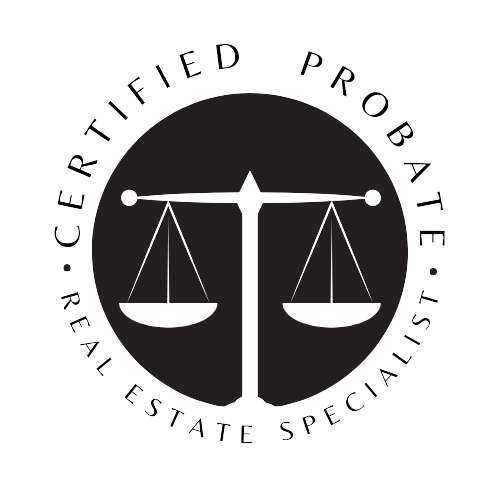
HOW TO AVOID PROBATE WITH ESTATE PLANNING & TRUSTS
Imagine your estate as a delicate puzzle, each piece representing a part of your life. Now, picture probate as a clumsy hand, fumbling with those pieces, causing delays and complications.
But fear not, for there is a solution to avoid this chaotic dance altogether. By utilizing the power of estate planning and trusts, you can safeguard your legacy and ensure a smooth transition for your loved ones.
But how exactly does this work? Well, let’s unravel the intricacies together, as we delve into the world of avoiding probate and the wonders of trust.
Key Takeaways
– Probate is the legal process of validating a deceased person’s will and distributing their assets but establishing a trust can help avoid the time-consuming and costly probate process.
– Trusts provide greater control over your estate and ensure that your assets are distributed according to your wishes without court intervention.
– By avoiding conservatorship through proper estate planning and trusts, you can minimize legal fees, potential family disputes, and ensure a smooth transfer of assets.
– Trusts offer significant advantages, including avoiding probate, providing privacy, minimizing taxes, streamlining estate administration, and addressing the unique needs of blended families and asset protection strategies.
WHAT IS PROBATE?

Probate is the legal process where a court validates a deceased person’s will and oversees the distribution of their assets. The probate process ensures that the estate distribution is done according to the deceased person’s wishes as stated in their will. During this process, the court also settles any outstanding debts, pays legal fees, and ensures that the estate assets are distributed to the beneficiaries.
One of the key aspects of probate is the appointment of an executor. The executor is responsible for carrying out the deceased person’s wishes as outlined in their will. This includes managing the probate inventory, which is a detailed list of the deceased person’s assets. The executor must ensure that all assets are accounted for and properly distributed to the beneficiaries.
The probate court plays a crucial role in overseeing the entire probate process. It ensures that the executor fulfills their duties and responsibilities, and it also handles any disputes that may arise, such as a will contest. If a person dies without a will, known as intestate succession, the probate court will determine how the estate assets are distributed according to state law.
The probate timeline can vary depending on the complexity of the estate, but it generally takes several months to a year to complete. Legal fees may also be incurred during the probate process, which can impact the amount of assets ultimately distributed to the beneficiaries.
HOW TO AVOID PROBATE | THE PURPOSE OF TRUST

If you want to avoid the time-consuming process of probate and prevent the need for a conservatorship, establishing a trust is the way to go.
By creating a trust, you can ensure that your assets are distributed according to your wishes without having to go through the probate court.
This not only saves time and hassle but also provides greater control over your estate.
It is going to avoid probate which is very time-consuming;
By utilizing estate planning and establishing a trust, you can effectively avoid the time-consuming process of probate. Probate can be a lengthy and complicated procedure, involving court hearings, paperwork, and delays. However, by creating a trust, you can simplify the process and ensure that your assets are protected.
A trust allows you to pass on your wealth to your loved ones without the need for probate, ensuring that your wishes are followed and avoiding any potential family disputes. Additionally, establishing a trust can help minimize taxes and reduce costs associated with probate. Furthermore, a trust provides privacy by keeping your estate details out of the public record.
It can avoid what is called a conservatorship
Utilizing estate planning and establishing a trust can help you avoid what’s known as a conservatorship. A conservatorship is a legal guardianship where the court appoints someone to manage the financial affairs and personal care of an individual who’s unable to do so themselves.
By planning ahead and creating a trust, you can ensure that your assets are protected and managed according to your wishes, without the need for court intervention. Trust administration allows for a smooth and efficient transfer of assets to your chosen beneficiaries, avoiding the lengthy and costly probate process.
Additionally, by avoiding court involvement, you can minimize legal fees and potential disputes among family members. Estate planning and trusts provide a comprehensive solution for long-term financial protection and asset distribution, while also helping you minimize estate taxes and maintain control over your affairs.
MISCONCEPTS ABOUT TRUSTS AND PROBATE
You may have heard some misconceptions about trusts and probate, but it’s important to understand the truth.
Two significant advantages of a trust are that it allows for the avoidance of probate and provides privacy for your estate.
The two gigantic advantages of a trust are
You may be wondering what makes a trust so advantageous when it comes to avoiding probate. Well, there are two gigantic advantages.
First, by establishing a trust, you can bypass the lengthy and costly probate process altogether.
Second, a trust can help you avoid a conservatorship, ensuring that your assets are managed according to your wishes even if you become incapacitated.
Avoid Probate
By establishing a trust, you can effectively bypass the lengthy and costly probate process. This offers two significant advantages.
First, you can avoid taxes that may be incurred during the probate process.
Second, you can streamline estate administration and avoid the need to go through probate court. This means faster trust administration and quicker estate distribution.
Additionally, by avoiding probate, you can save on probate fees and potentially eliminate the need for a probate lawyer.
Take advantage of these estate planning tips to navigate the probate timeline more efficiently.
Avoid a conservatorship
Avoiding a conservatorship is one of the two significant advantages of establishing a trust for estate planning.
By setting up a trust, you can explore alternatives to conservatorship, ensuring your financial planning for incapacity is taken care of.
Unlike wills, trusts offer the benefit of avoiding family disputes and providing asset protection strategies.
Additionally, healthcare directives and power of attorney play a crucial role in long-term care planning.
Trusts also address the unique needs of blended families in estate planning.
Frequently Asked Questions
What Are the Potential Drawbacks or Disadvantages of Using a Trust to Avoid Probate?
Using a trust to avoid probate has potential drawbacks. Trust administration can be complex, with tax implications and privacy concerns. Establishing a trust can be costly, and disputes among beneficiaries may arise. You may have limited control over assets and difficulty modifying or revoking the trust. Delays in distributing assets and ongoing trust management are also factors to consider.
Can a Trust Be Established After Someone's Death to Avoid Probate?
Yes, a trust can be established after someone’s death to avoid probate. The trust establishment process has several benefits, including avoiding probate, but there are legal requirements, tax implications, and trustee responsibilities to consider. It is important to consult an attorney for post-death trust establishment.
Are There Any Specific Types of Assets That Cannot Be Included in a Trust to Avoid Probate?
Some assets cannot be included in a trust to avoid probate. These excluded assets, such as non-probate assets, restricted possessions, and irrevocable assets, are ineligible for trust restrictions and remain probate bound properties.
What Happens if Someone Passes Away Without a Will or Trust in Place?
If you pass away without a will or trust, your estate will go through intestate succession. Court-appointed administrators will handle the distribution of assets based on state laws. This can lead to disputes, tax implications, and unclaimed property. Creating a will or trust is crucial to avoid probate.
Are There Any Circumstances Where Probate Might Still Be Necessary, Even with a Well-Structured Estate Plan and Trust in Place?
Even with a well-structured estate plan and trust, there are circumstances where probate might still be necessary. Common misconceptions, legal requirements, tax implications, family disputes, and the role of the executor can all impact this decision.
Conclusion
In conclusion, estate planning and trusts can be effective ways to avoid probate. By creating a trust, you can transfer your assets to beneficiaries without going through the probate process, saving time and money.
However, it’s important to understand that trusts aren’t a one-size-fits-all solution, and misconceptions about their effectiveness in avoiding probate should be clarified.
Consulting with an experienced estate planning attorney can help you navigate the complexities and make informed decisions about your estate.
Dedicated Probate Experts
Our specialized team possesses deep expertise in the probate sector. We navigate the complexities of the Probate Court with ease and work in tandem with probate lawyers to facilitate seamless transactions. Our comprehensive services are designed to meticulously handle every detail, tailoring solutions to the unique requirements of estate, conservatorship, or trust real estate sales.
We cater to a diverse clientele, many of whom reside beyond Broward County and even outside Florida. Our ability to provide exceptional service remotely means that in-person meetings are often unnecessary, ensuring convenience and efficiency for all our clients.
.
Real Estate Broker | REALTOR®
Albert Asensio is a licensed Florida Real Estate Broker with a certification in probate and trust sales, embodying a core belief that every client deserves 100% honesty and transparency. Since January 2000, Albert has led a successful real estate business, earning a reputation for speaking sincerely and is proficient within his profession. As a Broker Associate at Lokation Realty, he leverages his specialized probate team to streamline the probate process, alleviating stress for executors and beneficiaries alike, ensuring estate management adheres to legal standards, and safeguarding the interests of all parties involved.


1 thought on “HOW TO AVOID PROBATE WITH ESTATE PLANNING & TRUSTS”